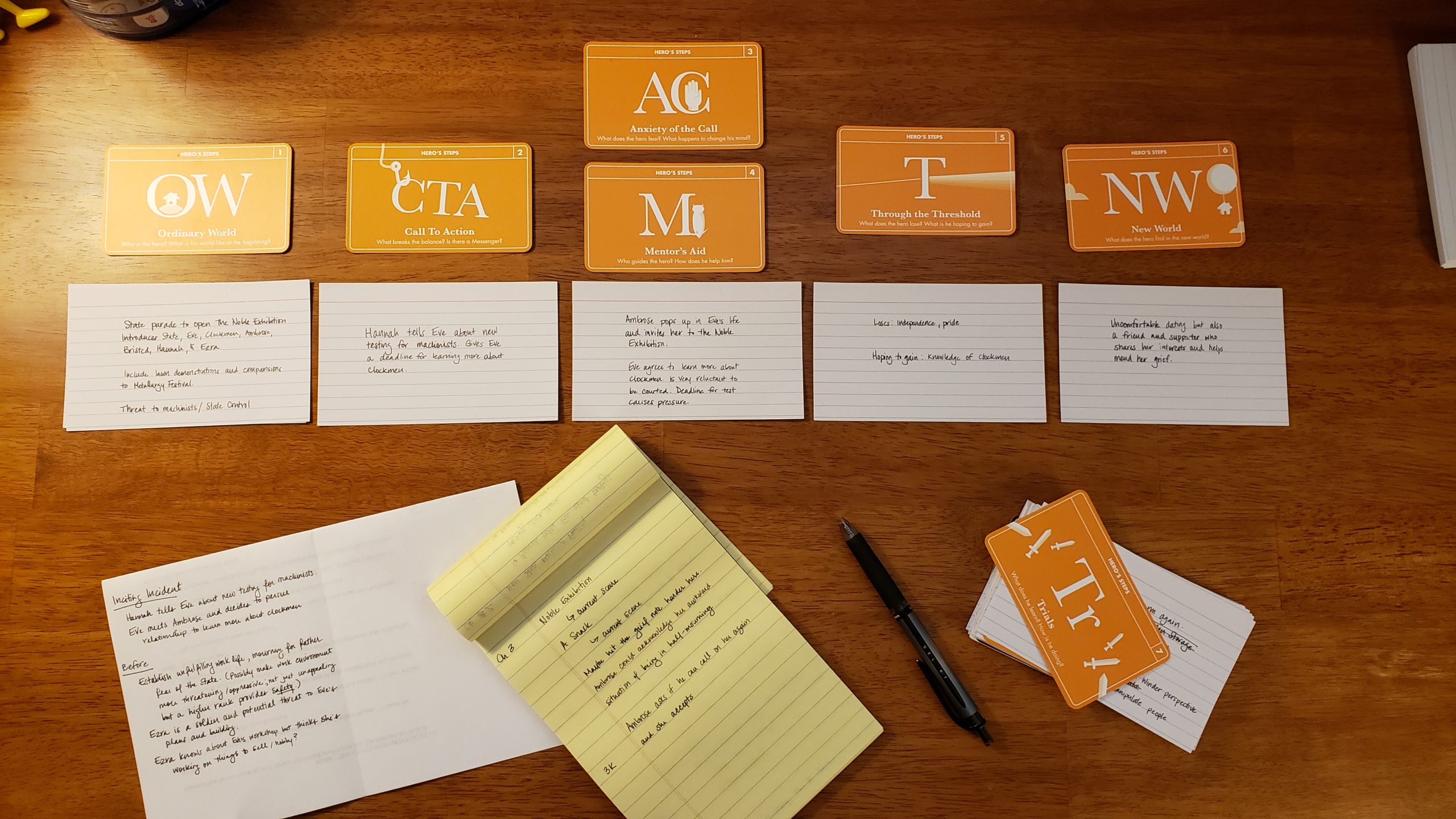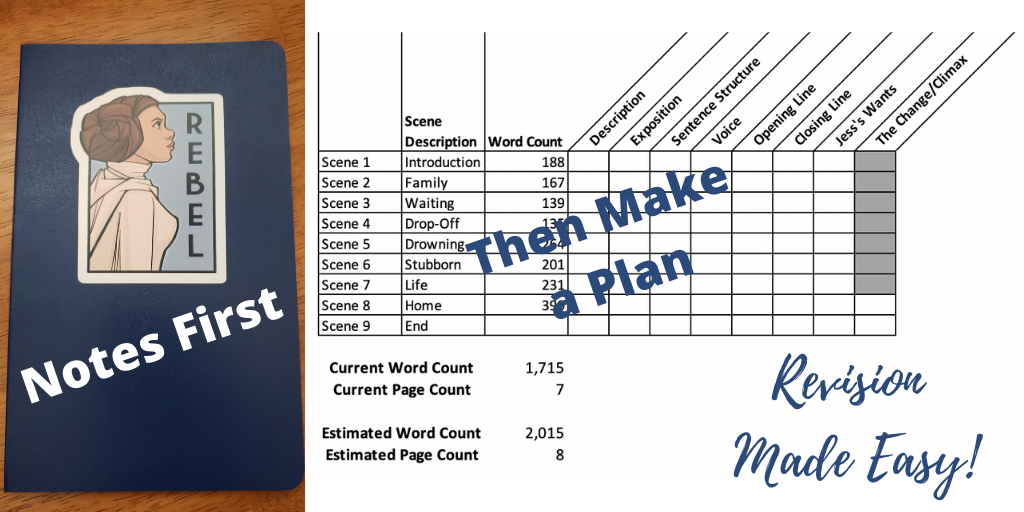This blog was written for and posted to The Creative Writing MFA and Beyond July 9, 2017. It has been updated for a wider audience and for revised advice concerning nudges.
At some point all writers have to deal with the business of writing. One of those business steps is getting an agent. Last summer I started querying my first novel. The querying process can be overwhelming and frustrating, which is why I’m sharing my experience and the resources that helped me navigate the process.
Preparing Yourself
Before you start looking up agents there are four things you need to prepare:
- a complete and polished manuscript
- a perfect first fifty pages
- a one to two page synopsis
- a query letter
Obviously, before you start querying a novel, you need to have the complete, polished manuscript. It needs to be agent-ready the day you send out your query letters. I received a request for the full manuscript the day after I started sending out queries. No more time for copyediting if I wanted to get the manuscript into the agent’s hands.
All agents will want a query letter, but many are also looking for sample pages of the novel. The number of sample pages varies dramatically—I had to submit anywhere between three and fifty pages. Because fifty appears to be the maximum requested, it’s a good idea to give extra attention to those pages and eradicate any typos or wonko language. Make sure your first few pages introduce the main character, hook the reader, and, basically, showcase the novel world.
Some agents specify a one-page synopsis, but others are more flexible (others may not want a synopsis at all). The synopsis should cover the entire plot of the book (even the ending) and should be entertaining. They don’t want a laundry list of events; rather, the synopsis should relate the main arc of the story and include the voice of the novel to show the tone as well as the plot.
The query letter is a whole craft unto its own. In brief, it should cover the stats (genre, title, and word count), the hook and/or comparative titles, a short blurb, and a brief author bio. It helps to have a little personalization as well, something that indicates that you’ve done the research and can say why this agent would want this book (this can also be done just by querying agents who are actively seeking things like your book). The query letter is covered in detail in many different places. I would recommend NY Book Editor’s article How to Write a Darn Good Query Letter to learn more about writing queries.
One More Thing To Prepare
A pitch is a one-sentence enticement for your novel. It should highlight the main character, motivation, and a crisis. You’ll need a pitch if you’re planning to go to a conference or want to participate in a Twitter pitch party. I recommend learning more about pitches since they can be another path to finding your perfect agent. They can even help you in the query process, as the pitch can be part of your query letter or give you another tool in your arsenal.
Researching Agents
Once you have your materials together, the next big step is researching agents and figuring out who to query.
Query Tracker is a wonderful resource for figuring out who represents your genre and generating a list of agents. In addition to searching for agents by genre, you can easily see who is currently open to queries and filter by query method. Query Tracker only lists reputable agents, so it’s also a good litmus test for finding agents who have a proven track record of making sales.
An agent profile on Query Tracker includes links to their agency website, email, Twitter, and other places to help you research them. The information I found most helpful in deciding whether to query an agent was their bio or submission guidelines, their current clients, and their Manuscript Wishlist. All of this information goes toward making sure you find an agent who not only represents your genre, but who matches your view of the publishing industry.
Manuscript Wishlist is another website that is extremely helpful for researching agents and personalizing query letters. Not all agents listed on Query Tracker have a MSWL profile, but many do. A good MSWL profile not only lists the genres an agent represents but has more details about their dream manuscripts—“fantasy from non-traditional eras”; “historical fiction set in the Middle Ages”; “badass, competent female protagonists.” This information can let you know if this agent is not only right for you, but is looking for exactly what you’ve written.
Don’t discount looking up the agents of your favorite authors and authors who write similar stories to yours. One agent wasn’t able to take me on (too similar to her other clients), but she liked my concept enough to pass my query to another agent in her company—and that agent requested the full manuscript! As long as your query is professional and follows the submission guidelines, you should submit. Don’t let intimidation stand in your way.
Sending Queries
I’ve read and heard recommendations to send queries in batches of no more than ten. The first batch is partly to test your query. If you don’t get at least one request for a partial or full manuscript, consider revising your query. If you get anything higher than a 10% request rate, send more queries when you’re ready.
The “when you’re ready” part is key because once I had prepared ten queries, I needed a break. I put about a month between my first two batches, but two to three weeks would have been preferable to keep responses rolling in more steadily. After you hear back from about half of your first round (or after you get one or two requests), start prepping that next batch of query letters.
Be aware that some agents have a “no response = no” policy or they can take over two months to respond. This can make it difficult to query if you’re waiting on responses. To ensure you get responses to your first batch of queries, spread out your queries among agents who have a variety of response times and policies. (And remember, never close a query until at least two months have passed, or the expected response time listed on the agency website. Response times and policies are nearly always listed on the website.)
Tracking Queries
While you can keep your own spreadsheet of the day you sent your query, when you expect a response, and what that response eventually is, I highly recommend using Query Tracker. Once you select the agents you want to query, Query Tracker lets you cultivate a list of those agents and then track when you sent your query and their response. While you can use Query Tracker for free, a yearlong membership is only $25 and gives access to powerful query tools, including the ability to prioritize queries and see an agent’s timeline.
The timeline lets you see when other writers have submitted, when they received a response, and what that response was. You can also see about where you fall in an agent’s queue. I found that while I was trying oh so very hard to be patient, checking Query Tracker once per day to see if agents had made progress on their queues was helpful for keeping myself focused and keeping my worry in check. (Although when I was next in the queue, sometimes that heightened the anxiety.)
Another cool thing about Query Tracker is that while most agencies list their expected response times, using the timeline allows you to see how quickly agents are currently responding. One agency listed a 4-week response time, but I could tell by Query Tracker that a specific agent was responding within a week of recent queries. It made it an easy decision to move that agent up in my priority list because I knew I’d get a response quickly.
Getting Requests
When you get a request for your manuscript, first freak out and celebrate. Then send your manuscript as quickly as humanly possible (while still writing a polite, typo-less response to the request). If you thought an agent responding to your query letter took forever, buckle up for the Patience Carousel—you know, the ride that moves slowly and in circles? A novel, or even a partial (which often sits at that magic length of fifty pages), takes time to read and evaluate, especially when you consider that taking on new clients is only one aspect of an agent’s job.
You tried being patient and it took too long? I know, I know. You can nudge an agent about a requested manuscript, but give it an appropriate length of time before contacting them. If an agent doesn’t list expected response times for requested materials, plan to wait at least six months. Think of it this way, would you rather an agent spend time reassuring you that your manuscript is still in the running, or would you rather an agent spend that time actually reading your manuscript? If you’re planning to move on from a manuscript, that is an appropriate time to nudge.
Another reason to nudge—and the best reason, I’d say—is if you have an offer from another agent. This is the reason you keep sending queries even after those first requests. Once someone makes an offer of representation, notify the agents you queried but haven’t heard from. This gives them an opportunity to look over your query and manuscript before you’re off the market.
Finding Support
While the support of friends and family are great, I highly recommend the support of a friend who has been through the querying process or who understands the publishing culture and knows about agents. My mom teared up the first time I told her I had a full manuscript request and—while that was great—it was even better when I texted my friend-in-the-know. She knew who the agent was and responded positively about him.
A friend-in-the-know can also recommend other agents to query, or provide feedback on your pitch, query letter, or synopsis. Querying can be a rough road, and it is filled with rejection, so planning how to support yourself is key to finishing the quest.
Summary: Take This
There’s a lot more to querying than can be covered in a single blog post, but hopefully this gives you an idea of what to expect and where to find additional information to start your research. Don’t be afraid to ask writers about how they found their agent or what the relationship is like. Writers love telling stories and the agent search is just another story.




